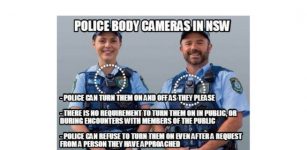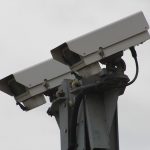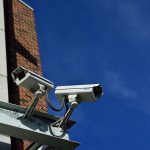Police Body Cameras in NSW: What Does the Law Say?

Since 2014, the NSW Police Force has spent tens of millions of taxpayer dollars on “Body Worn Video Cameras” (BWVs), starting first with Sydney and extending to rural areas.
We’ve heard a lot about the pros and cons of body cameras, but what does the law actually say about their use? When can police operate them, and what happens to the footage?
The Law
The use of body cameras by police is authorised by section 50A of the Surveillance Devices Act 2007 (NSW).
The section says that police officers can use the devices:
- If they are acting in the execution of their duty; and
- If the use of the camera is overt eg if they inform the person who is to be recorded; and
- In the event they are recording a private conversation, if they are either in uniform or have provided evidence to other people in the conversation that they are a police officer.
A police media release states that “police will wear BWV cameras on their body so they are clearly visible to the public.” It goes on to state that, where practicable, police will advise those they are talking to that their conversation is being recorded.
Despite the requirement of being “overt”, section 50A(3) says that recordings which are “inadvertent or unexpected”, or incidental to the use of the body-worn video by the police officer, will still be allowed under the law.
When Can They be Used?
Police can use body cameras in both public and private places.
The decision to use a body camera is discretionary, meaning that police decide whether (and when) to turn it on – even if a member of the public requests that an encounter be filmed.
This means that police can simply decide what they wish to film.
What Happens to the Footage?
The footage is classified as protected information; which means it is meant to be downloaded off the cameras and stored in a police archive.
Police officers are not supposed to delete footage from the cameras. Rather, they are required to download it onto a police database and archived. No one is supposed to copy, use or disclose the information for non-official purposes.
The footage is only meant to be used:
- In court as evidence;
- For investigation, including complaints against police;
- As training material for police; or
- As otherwise allowed by regulations.
Any illegal use of the footage an offence, and those found guilty can face going to prison for up to two or five years (depending on the conduct).
Concerns
A range of concerns have been raised about the law when it comes to the use of BWVs.
The most glaring issue is that police have full discretion over the use of the cameras – meaning they can turn them on and off as they please. This means they could potentially provoke a member of the public, then film parts of the reaction, then stop filming and engage in further misconduct thereafter. It also means police can choose not to film an encounter at all.
There are calls for the law to be amended to require the activation of cameras at all times when officers are in a public place, or at least during all encounters with members of the public, unless entirely impractical. The current law allows officers to refuse to film an encounter even if requested to do so by the person they confront.
There are also concerns that police will simply neglect to download incriminating footage as required, or will illegally access, misuse, delete or edit footage contained on the police database.
Only time will tell whether police body cameras will keep police and the public accountable as claimed, or simply be used as a tool to record only that which benefits police.






